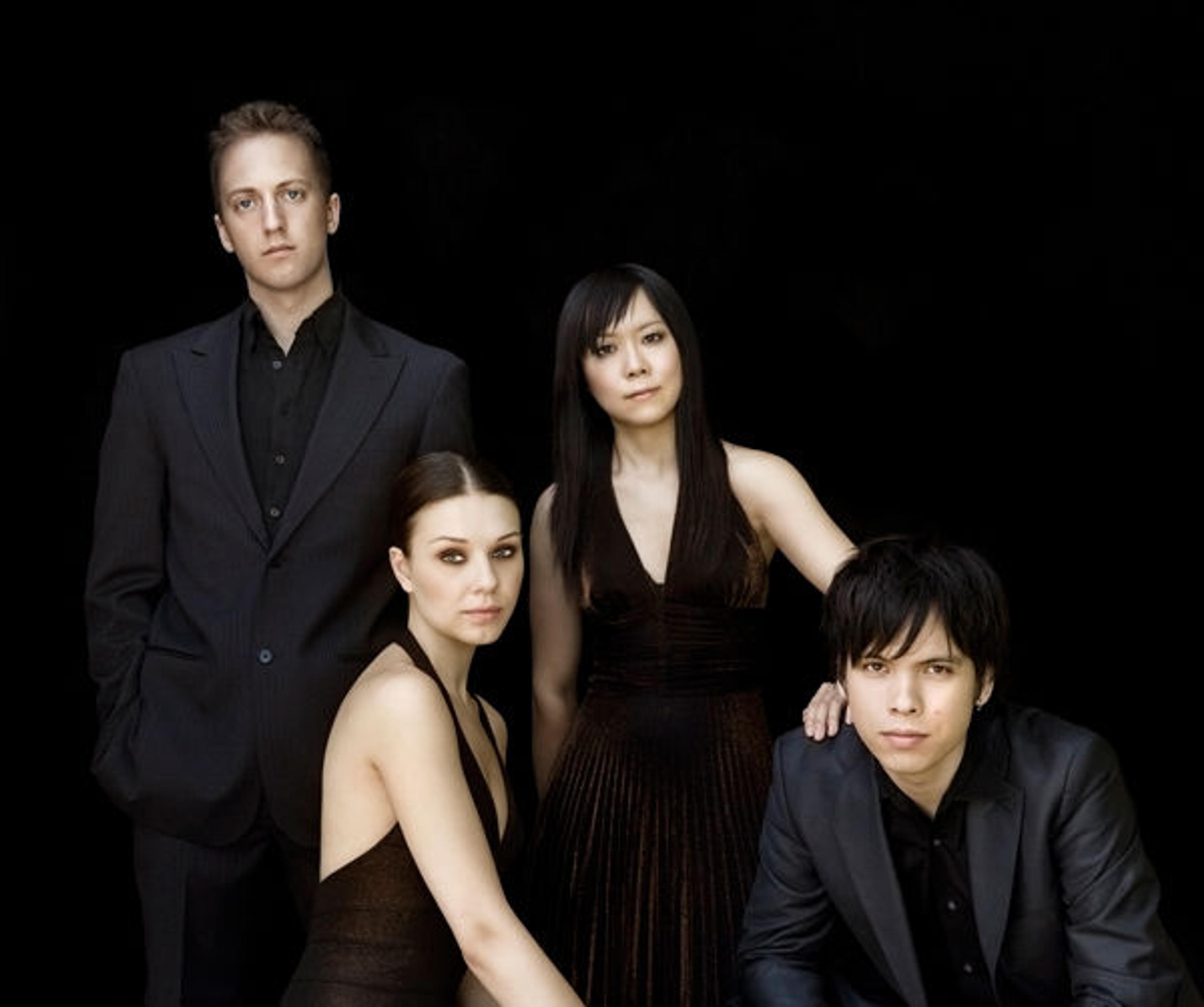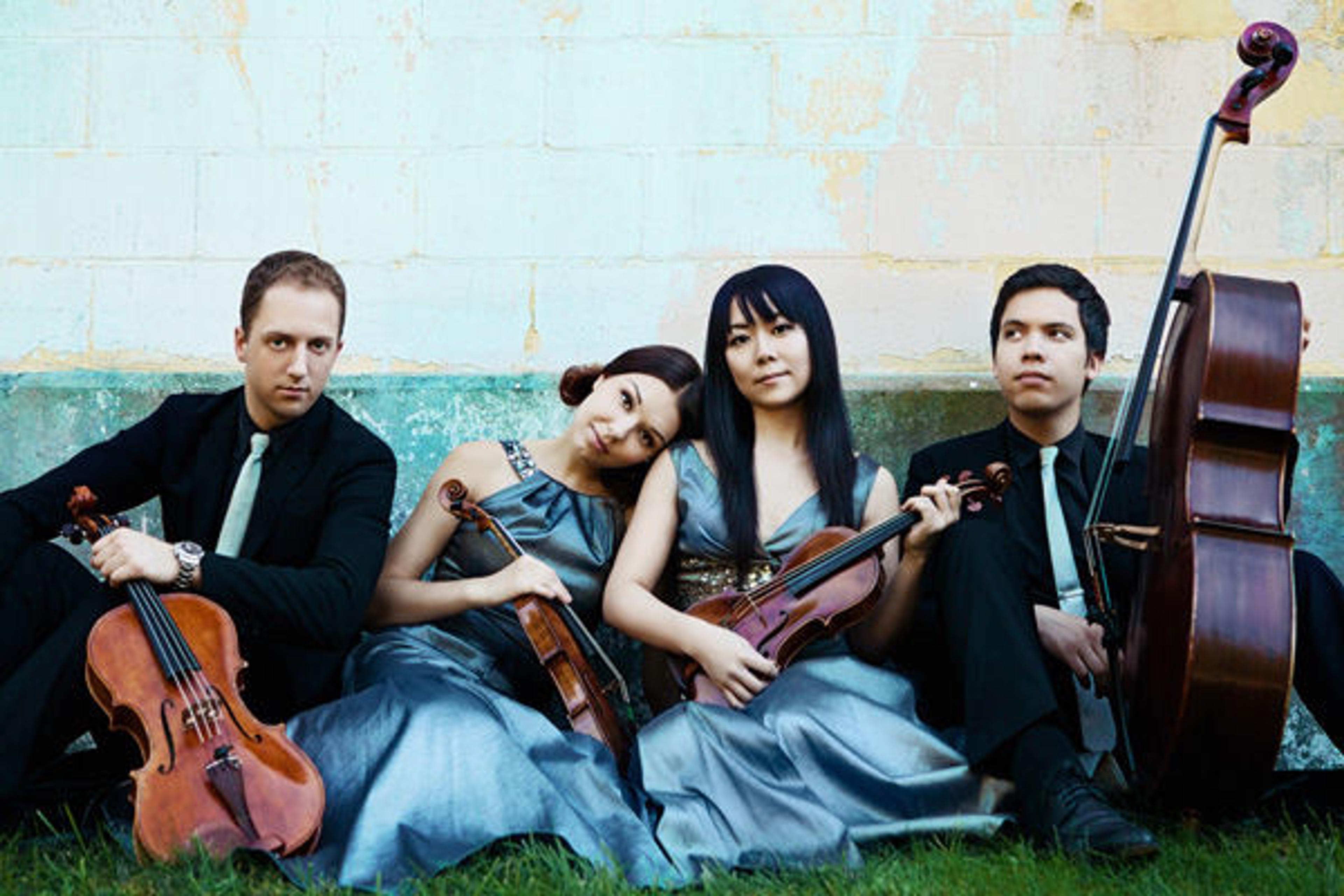
Attacca Quartet © Lisa Marie Mazzucco
«Few composers have an output of chamber music with such singular impact as Franz Joseph Haydn's string quartet cycle. The sixty-eight quartets, written over the course of nearly forty years, are so revered in the musical canon that the composer has become well known as the "Father of the String Quartet." As part of their yearlong relationship with the Museum, Attacca Quartet—the Met Museum Presents 2014–15 Quartet in Residence—will perform two concerts of Haydn's music which will include three quartets as well as the string-quartet version of the transformative Seven Last Words of Christ on the Cross, presented with an evocative video environment by Ofri Cnaani.»
Attacca's concert on Friday, October 10, in the Met's stunning Vélez Blanco Patio, is the latest installment in their "The 68" project, an ambitious directive to perform all sixty-eight of Haydn's quartets as an all-inclusive series that juxtaposes early, mid-, and late career quartets into evening-length programs. In fact, the three quartets represented on their upcoming Met concert—nos. 17, 31, and 61—span twenty-five years, thus showing the emotional and intellectual progression of the composer as he brought an ever-growing degree of innovation to the musical form.
Haydn is often thought of as a strict composer of the Classical style, but having lived to a then-rare age of seventy-six, the composer actually bridged the gap between the Baroque sentiments he studied as a child, the Classical traditions that formed a new cornerstone in music, and the Romantic ideals he helped define, which paved the way for later composers such as Beethoven and Schubert to further explore. Haydn's quartet cycle is one of the few to extend from juvenilia through final works, and the importance of his legacy on the form was immediate: Mozart dedicated his set of six quartets to Haydn after studying the latter's compositions; Beethoven also studied Haydn's quartets before penning his own; and Brahms owned the original, autographed manuscript of the Op. 20 quartets.
Haydn's quartets were an expression of his own singular wit and invention. As an employee of Prince Nicholas Esterházy of Austria, Haydn served as court composer for nearly forty years at the prince's palace outside of Vienna. Although the prince was a noted fan of music and played the baryton (an archaic version of the viola da gamba) himself, never once was Haydn commissioned to write a string quartet during his employment. Instead, Haydn used the string quartet as an antidote to the public, divertimento-like music he composed for the Austrian court. As opposed to the strict forms and typical voices given to strings in public performance, Haydn used the quartet as a means of exploring textural possibilities and emancipating the four voices from their standard characters: the cello was free to grow in terms of expression as a lead melodic voice; the viola sometimes moved into the bass-line role; and the two violins often provided counterpoint and harmony that underpinned the action of the lower strings—a far cry from the standard trope of first violinist as the sole star of the show.
From a compositional standpoint, Haydn brought an incredible variety to his quartets. Composed in groups of six, each set of quartets contains no two works in the same key (Attacca's program maintains this theme, with the three quartets on the program all written in a mix of different major and minor keys). This harmonic freedom paved the way for a heightened sense of narrative to the works, as well as the addition of motivic development on a much grander scale than had been previously used in chamber music. Like Haydn's enormous symphonic output (104 symphonies in total), the quartets are representative of the Sturm und Drang (Storm and Stress) movement found in German literature and music of the time, which emphasized an extreme emotional range and frequent use of the somber minor keys.
Met Museum Presents is thrilled to have Attacca Quartet as this season's Quartet in Residence, and especially so to have this young group provide a season of probing programs throughout the year. In addition to their two concerts of Haydn this season, Attacca will also lead commanding performances of John Adams's John's Book of Alleged Dances alongside dancer and choreographer Francesca Harper, Leoš Janáček's two string quartets, and a holiday-themed concert which will feature music of Dvořák, Mozart, and the group's own arrangements of Christmas carols by French composer Francis Poulenc.

Attacca Quartet © Lisa Marie Mazzucco
To purchase tickets to any of Attacca Quartet's upcoming performances or any other Met Museum Presents event, visit www.metmuseum.org/tickets; call 212-570-3949; or stop by the Great Hall Box Office, open Monday–Saturday, 11:00 a.m.–3:30 p.m.
Related Link
Of Note: Happy Birthday to Papa Haydn, Father of the String Quartet